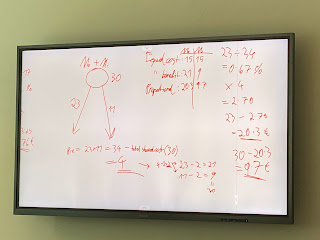Organizational Behavior Session 3
In today's first session, we started with a review of the previous classes with the different innovation strategies: the sustaining innovation, the disruptive innovation and the new market innovation. We learn that disruptive innovation is an opportunity before it becomes a threat so companies must continuously begin to innovate when their business is still strong. Profits and revenues from the core businesss should be invested into new technologies. Companies that do not predict change accordingly and adapt are more likely to fail. Then we built upon on our previous case studies and applied the structural inertia and the dynamic capabilities. Structural inertia is basically the resistance of organizations to deviate from the status quo and is one of the reason why organizations are slow to adapt to radical change. On the other hand, dynamic capabilities enable organizations to change and adapt to rapidly changing environments. They sense and actively research into new opportunities available and reconfigure their resources and capabilties for the firm to evolve with the time. In the case of Starbucks, it was constantly finding small innovations and incorporating it into their business models while still getting to job-to-be-done complete. It did not compromise the daily operations of the coffee shop, instead it garners more business because of the feasibility and the ease of getting Starbucks. Differently, Kodak was more focused on its core business models, which did not anticipate the rapid rise of the digital cameras. This does not mean that Kodak did not see it coming, it did. In fact, it was the engineer of Kodak who produced the first digital camera. Kodak was too stiff in its ways and did not seize the opportunity present and instead, turned the disruptive innovation into a threat of its company. Thus, flexibility and continuously learning and disrupting of ones company is vital in sustaining a business.

Comments
Post a Comment